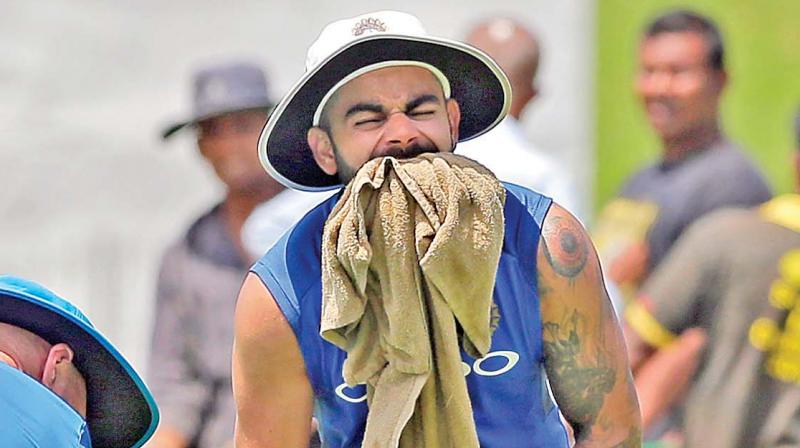Lively debutants lit up Test arenas

The relaxed manner in which Team India played and won the Galle Test is symbolic of team bonding under the new management team of Virat Kohli and head coach Ravi Shastri. A change in the regular Sri Lankan formula of loading the pitch in favour of spinners may have also been instrumental in the Men in Blue running away with it.
The old fort in Galle just outside the once tsunami-ravaged ground used to be a symbol of this ground being considered a fortress of the Sri Lankan team. But the current side has come down some since the retirements of the batting greats Jayawardene and Sangakkara and the double-jointed spin wizard Muralitharan. Maybe, that was the reason they laid out a fairly grassed pitch at the pretty ground by the sea.
With Shikhar Dhawan setting off like the electric hare, the Lankans were pummelled into submission fairly early. The angles the left-handed opener achieves seem to conform to a quirky geometry, but his striking of the ball through various parts of the field is always decisive, even more so in this innings. He seemed to have been overtaken by some spirited thinking about his Test spot and how doubts had been cast on it thanks to earlier dips in form.
Where the Indian batsmen really excelled was in their handling of the spinners, with active footwork that saw them use the width of the crease as well as the free areas beyond the confines of the crease. The manner in which Rangana Herath was dismantled was, perhaps, the key to the conquest. The champion of turners, more so on the worn out pitches of the later innings, was reduced to a passenger in this Test with the batsmen picking on him.
Shikhar’s dismantling of the bowling was spectacular and Cheteswar Pujara’s batting like another passage from a textbook of Test match batsmanship marked the opening day, it was the freedom with which Hardik Pandya batted that made the second day so memorable. Modern cricketers are smart players capable of switching formats in an instant. But here was a "One-Day" specialist descending on the Test scene with no thought of any constraints of the big arena, white clothes and red ball.
Many a modern cricketer is from the "see ball, hit ball" category and even the colour blind ones are said to have been helped by the white ball of the new era. This Pandya is a talented striker in the Ben Stokes category and he also bowls a whippy and useful medium pace. Full marks for a cricketer who not only makes an effort but is also seen to be enjoying all tasks, including being lively in the field and transmitting that keenness to be in the game at every possible moment.
The Indian attack was featured by the effort balls the seamers sought to bowl even when they were up against good batting conditions in which some of the Sri Lankans tried to defy them with patience as well as the modern batsmen’s ability to go freely at every loose ball. Modern Test cricket can be dour at times, but is never dull. We saw the same in Galle as well as in the Oval Test in wildly seaming conditions in which Stokes made a wonderful century, battling the bowlers and the conditions all the way.
The adventurous strokes stood out as the batsmen believe in living the ball the treatment when they see the juicy one coming along. They also create some opportunities to strike out although it must be said that technically they may not be as sound as some of their colleagues of earlier generations. The moment bowler-friendly conditions were spotted, the South Africans came unstuck and it was too late by the time the battling opener with the bruised thumb, Elgar made a fighting century in the spirit of the dour old men of the game. The likes of debutant Toby Roland-Jones showed the value of trusting instinct on the newcomers much like Hardik’s debut for India. Cricket will be all the more entertaining the more new talent emerges.

